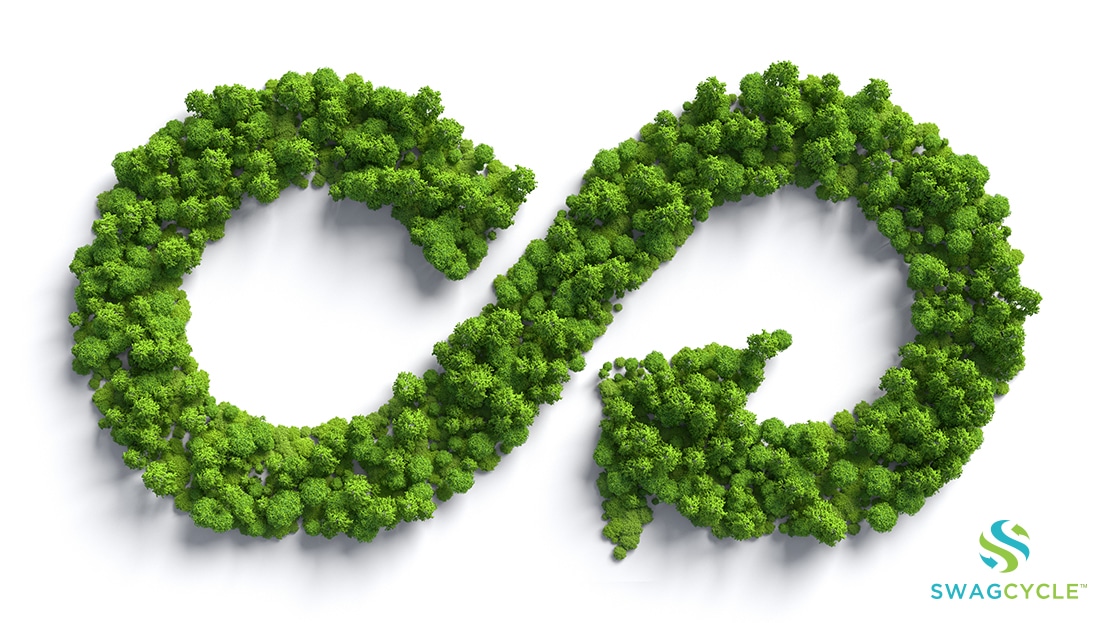As companies increasingly recognize the importance of sustainability, the concept of a circular economy has emerged as a compelling framework for minimizing waste, maximizing resource efficiency, and promoting long-term sustainability while driving innovation, building a positive brand image, and increasing profitability.
Read on as we take an in-depth look at the concept of a circular economy and explore the role companies can play in creating sustainable systems.
What is a circular economy?
In the linear economy model – which dominates our global supply chain – raw materials are processed, used, and discarded as waste. In contrast to this ‘take-make-waste’ model, a circular economy is a system where materials and products never become waste. They are built to last and are kept in circulation through processes like repair, reuse, refurbishment, remanufacture, recycling, and composting.
Regenerative by design, a circular economy aims to decouple growth from the consumption of finite resources and to grow prosperity, jobs, and resilience while cutting greenhouse gas emissions, waste, and pollution. Circular economy practices are also good for business – they can shrink a company’s environmental footprint, trim its operational waste, and allow it to use resources more efficiently.
To transform our current take-make-waste system to a circular one, we must change how we manage resources, make and use products, and handle those products after use.
How companies can play a role in creating sustainable systems by repurposing their waste and resources
Companies are critical in the shift from our current throwaway system to a circular economy and can play a vital role in creating sustainable systems by shifting their practices and repurposing their waste and resources.
Here are our top 5 tips for implementing circular economy practices at your company.
1. Evaluate your current practices
Start by taking a look at your current practices and determining areas where waste can be reduced or resources can be conserved. Identify opportunities for improvement, and set achievable goals and targets that can minimize waste while improving business performance.
2. Design products for circularity that are built to last
Focus on creating products that are durable, repairable, and made from renewable or recycled materials. This will allow for easy repurposing and recycling at the end of their lifecycle, reducing waste and saving resources.
3. Develop new strategies for reusing, reducing and recycling
By developing and implementing strategies focused on reusing, reducing, recycling, and creatively repurposing, your company can minimize waste and reduce its environmental footprint while also lowering costs.
4. Share your values with customers
Use your commitment to sustainability and support for circular economy practices as a unique selling point to internal and external stakeholders. Highlight this commitment in communications with your customers and share how they can help contribute to sustainability. Embracing circular practices can enhance brand image and customer loyalty as consumers seek more sustainable products.
5. Seek collaboration with organizations that share your sustainability values
Align your business with partners, suppliers, and service providers who also prioritize sustainability and waste minimization. This can involve choosing suppliers who use recyclable materials or partnering with organizations that share your values and offer sustainable solutions. By partnering with such organizations, you can maximize the social and environmental impact of your efforts.
Services like SwagCycle can be valuable allies in your company’s efforts to implement circular economy initiatives, offering expertise in sustainable solutions that amplify your impact.
Does your company have obsolete branded merchandise you’d like to keep from becoming waste while having your products matched with a good cause? Learn more about us, how SwagCycle can help your company or organization repurpose, recycle, and donate your branded merchandise.


